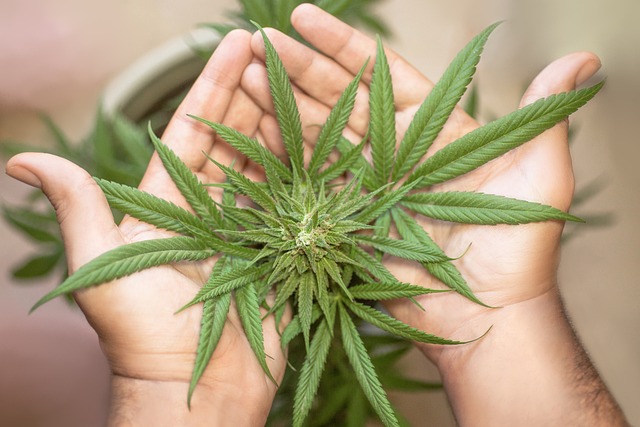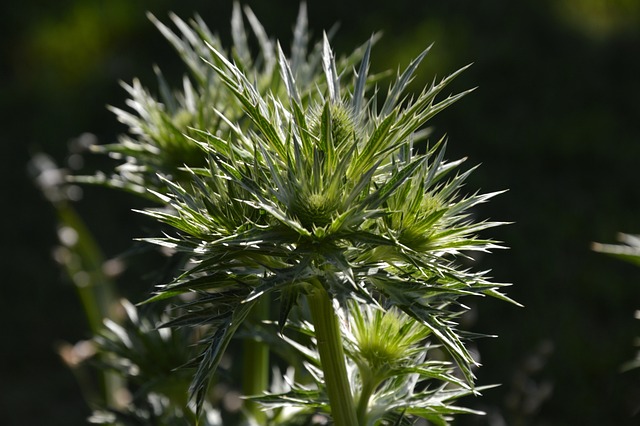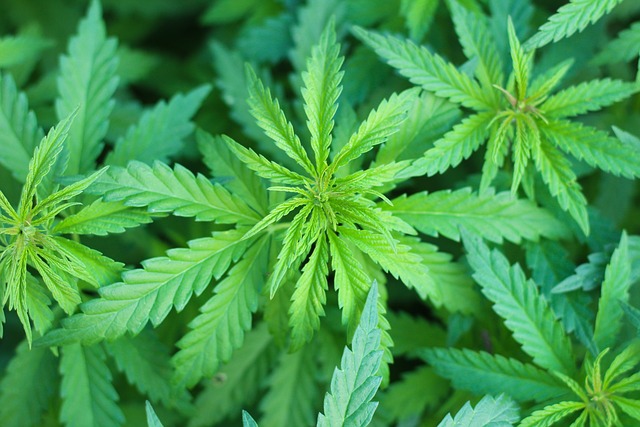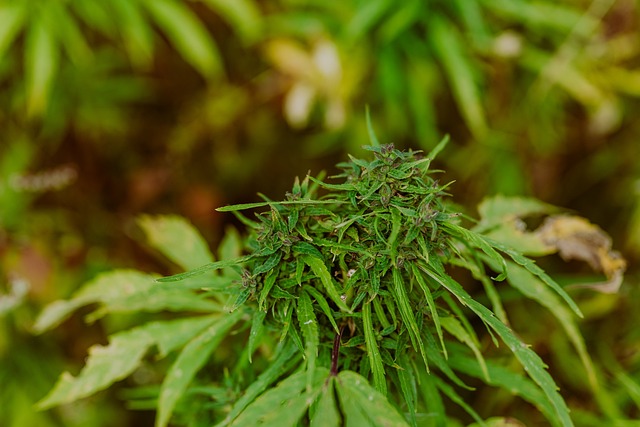THCA, the non-psychoactive precursor to THC and a key cannabinoid found in cannabis plants, has become a therapeutic alternative in Minnesota due to its analgesic, anti-inflammatory, and neuroprotective properties. With its legal status established under Minnesota's evolving cannabis regulations, consumers are increasingly opting for THCA as a natural remedy for conditions like chronic pain and inflammation. The state's progressive legislation has paved the way for a burgeoning market for THCA products, including flowers and concentrates, which can be cultivated within the parameters of Minnesota's industrial hemp program. Growers must navigate the state's specific challenges, such as its seasonal climate, to produce high-quality THCA flowers with optimal yields and potency. The cultivation process involves leveraging Minnesota's long daylight hours, managing soil and nutrients carefully, and maintaining ideal growing conditions through environmental controls. The demand for THCA legal in Minnesota continues to rise, emphasizing the need for accessible and reliable sources, and ensuring that these products meet the high standards set by state regulations.
Exploring the multifaceted benefits and uses of THCA flower tips within Minnesota’s evolving legal cannabis landscape, this article delves into the nuances of THCA as a natural precursor to THC, its cultivation in the state, and its rising popularity in dispensaries. We’ll navigate the legal status and regulations specific to THCA flowers in Minnesota, guide you through safe consumption methods and dosage, and explore the entourage effect when combined with other cannabinoids. Additionally, we’ll highlight top strains, offer tips on preserving freshness, and discuss safety considerations for residents utilizing THCA flower tips. With insights into DIY extraction and infusion methods, the role of THCA in medical marijuana, and a comprehensive buyer’s guide, this article is a compass for understanding the significance of THCA legal in Minnesota, its implications for the state’s cannabis market, and its comparison to other cannabinoids.
- ThCA Flower Benefits and Uses in Minnesota's Legal Cannabis Landscape
- Understanding THCA: The Natural Precursor to THC
- THCA Flower Cultivation: Guidelines for Growers in Minnesota
ThCA Flower Benefits and Uses in Minnesota's Legal Cannabis Landscape

Delta-9 tetrahydrocannabinol (THC) is well-known for its psychoactive properties, but delta-9 tetrahydrocannabinolic acid (THCA) is gaining attention for its potential therapeutic benefits. THCA, the raw form of THC, is found in raw cannabis plants and certain legal cannabis products in Minnesota. As Minnesota’s legal cannabis landscape evolves, THCA flower tips have emerged as a topic of interest among consumers and health enthusiasts. These flowers contain THCA that, when decarboxylated—a process that converts THCA to THC through heat—can produce psychoactive effects, but they also offer a range of potential benefits without the immediate intoxicating impact.
Research suggests that THCA may provide analgesic, anti-inflammatory, and neuroprotective properties. Minnesota’s legal cannabis market allows for the exploration of these potential health benefits in a regulated setting. Consumers are increasingly looking towards THCA flower tips as a natural way to address conditions such as chronic pain, inflammation, and neurological disorders. The state’s regulatory framework ensures that these products are tested for safety and potency, making them a reliable choice for those interested in the therapeutic effects of cannabinoids. As awareness grows, Minnesota’s legal cannabis industry continues to innovate, offering new ways for consumers to experience the benefits of THCA flower tips responsibly and legally.
Understanding THCA: The Natural Precursor to THC

Cannabidiolic acid (CBDa) and tetrahydrocannabinolic acid (THCa) are two prominent cannabinoids found in the Cannabis sativa plant. THCa is the natural precursor to THC, the psychoactive compound known for its mind-altering effects. Unlike THC, THCa is non-psychoactive, which makes it a subject of interest for researchers and consumers alike, particularly in regions where cannabis legislation, like in Minnesota, allows for such compounds. The legal status of THCa in Minnesota is distinct from that of its psychoactive counterpart, THC, offering consumers an alternative with the potential therapeutic benefits associated with cannabinoids without the ‘high’. This distinction has led to a burgeoning market for THCa products, which are increasingly available in various forms, including flowers and concentrates.
The interest in THCa, particularly as it relates to its legal status in Minnesota, stems from its unique properties. THCa is being studied for its potential anti-inflammatory, anti-nausea, and analgesic effects, which could be beneficial for a range of conditions. Its legality allows consumers to experiment with the raw acid form of the compound before it undergoes decarboxylation, a process that converts THCa into THC when exposed to heat, thus offering a degree of control over the desired effects. As such, THCa flowers are gaining popularity among those who seek the potential wellness benefits of cannabinoids without the psychoactive experience. This has led to an increase in demand for information and access to high-quality THCa products across the state.
THCA Flower Cultivation: Guidelines for Growers in Minnesota

Cultivating THCA flowers in Minnesota requires adherence to state regulations, as THCA, or tetrahydrocannabinolic acid, is a cannabinoid found in both hemp and marijuana plants. With the legal status of THCA clearly defined, growers in Minnesota can proceed with cultivation, ensuring they are licensed under the state’s industrial hemp program. The climate of Minnesota, characterized by distinct seasons, poses unique challenges and opportunities for growing THCA-rich flowers. To maximize yields and potency, it is crucial to select strains that thrive in cooler temperatures and are resistant to common pests and diseases prevalent in the region.
Growers must take advantage of Minnesota’s long daylight hours during the summer months by optimizing their growing conditions, including soil quality, nutrient delivery, and watering schedules. The cultivation process should begin with a well-planned setup that includes ample space for plant growth, proper lighting for indoor operations, and environmental controls to maintain optimal growing conditions. Regular monitoring for pests, diseases, and overall plant health is essential to prevent any issues that could affect the THCA concentration in the flowers. Adhering to these cultivation guidelines will help Minnesota growers produce high-quality THCA flowers within the bounds of the law, ensuring a successful and compliant crop.
2023 has been a pivotal year for the cultivation and consumption of THCA flower in Minnesota, marking a new era within its legal cannabis landscape. The exploration into the benefits and uses of THCA has underscored its potential as a natural wellness aid, offering a distinct advantage over its psychoactive counterpart, THC. Growers in the state have been provided with comprehensive guidelines to optimize THCA flower cultivation, ensuring they can capitalize on this burgeoning market while adhering to legal standards. As Minnesota continues to shape its cannabis industry, THCA remains at the forefront of innovation and wellness, offering a promising addition to the state’s legal offerings.
